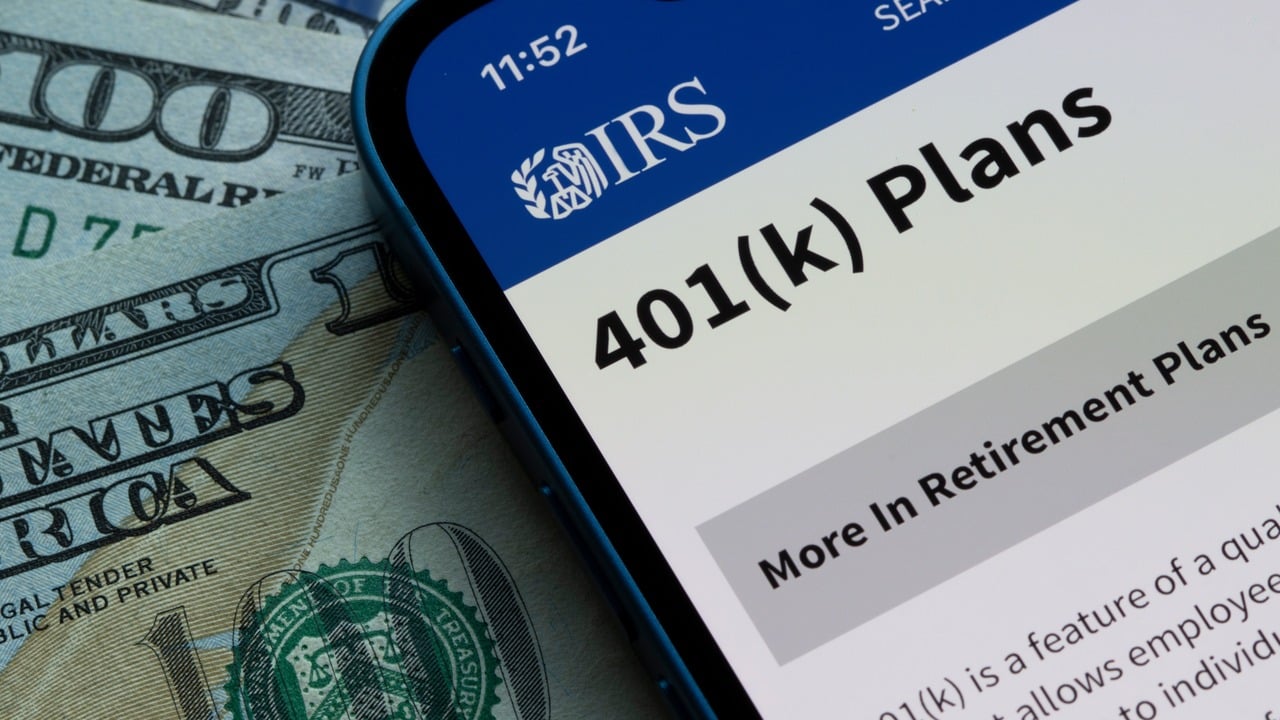Here’s Why Taking Your 401(k) With You Matters When You Switch Jobs

According to Robert Half, more than half of United States companies plan to increase hiring in the first half of 2024. Additionally, employers added 216,000 jobs in December, according to the most recent jobs report by the Bureau of Labor Statistics.
This reality, coupled with mass layoffs in 2023 and 2024, means many workers will need to switch their 401(k) plans from their former employers in 2024.
While workplace retirement accounts are transferable by design, workers can be confused about what to do with their 401(k) when switching jobs. Even so, knowing what to do in these situations matters.
Experts recommend taking your 401(k) with you when you switch jobs for a number of reasons. The average full-time employee works 2,080 hours a year, so why not save some money for retirement?
According to Kerry Hannon, senior columnist at Yahoo! Finance, addressing your old 401(k) essentially boils down to four choices: cash out, leave your funds in your old employer plan, move the money to a new plan, or rollover to an individual retirement account (IRA).
Leave Your 401(k) With Your Old Employer
You can leave your 401(k) with your old employer. However, you risk forgetting about these funds or not knowing how to access them.
If, for example, you leave your funds with a company that later goes bankrupt, you might need some help receiving them. So, continue to read your monthly statements while keeping a keen eye on the company’s performance.
If you want to leave your 401(k) with your old employer, you’ll also need to keep up with the company so you can manage your account with them.
Cash Out
Cashing out your retirement savings may sound exciting and easy, but taking this lump-sum distribution carries tax implications.
While you can take money from your retirement plan and spend it, you’d pay tax on the distribution of your 401(k) and a 10% penalty, according to the Internal Revenue Service (IRS). There’s no way to avoid these costs unless you’re over 59 ½ years old.
So, unless you’re in acute financial distress, you should resist the urge to cash the money out. However, if you hold less than $1,000 in your 401(k) account, your former employer can cash you out regardless.
If you don’t earn much — perhaps around $35,000 per year — you could take control of your retirement savings by cashing out and placing your funds in a personal investment app such as Acorns.
Move the Money to Your New Employer’s Plan
If your new employer’s plan makes sense to you — your new employer accepts rollovers, you like the options your new employer offers, and the fees aren’t too high — you can ask if they accept 401(k) rollovers.
Moving your money to your new employer’s plan can help avoid taxes and penalties because you aren’t withdrawing money.
If your new employer’s investment options don’t appeal to you, you can consider a rollover to an IRA instead.
Rollover to an IRA
Rolling your 401(k) over to an IRA allows you to take control of your retirement funds. An IRA can be a good option if your company’s fees are too high or you’re concerned about the organization’s financial health.
Rolling over your 401(k) to an IRA allows you to take advantage of various investment options, including direct stock and bond holdings, as well as ETFs.
You can also convert your IRA to a Roth IRA, allowing your assets to grow tax-free. Just keep in mind that if you have a Roth 401(k), you’ll need to transfer it to a Roth IRA.
Why Taking Your 401(k) With You Matters
Whether you move your 401(k) with you to a new employer or directly transfer those funds to an IRA, you will take advantage of opportunities to maximize your retirement savings if you take your 401(k) with you when you leave an employer.
Remember, leaving a 401(k) with an old employer can result in difficulty recovering your funds when you need them, and cashing them out can result in tax penalties, even if you transfer your 401(k) to a personal investment app.
While we recommend taking your 401(k) with you when you leave an employer, the wisest move ultimately depends on your unique situation and current and long-term goals.
Fortunately, you don’t have to decide how to manage your 401(k) right away. Consider making time for an appointment with a financial adviser to learn about your options before you make any important decisions.
This article was produced by Media Decision and syndicated by Wealth of Geeks.